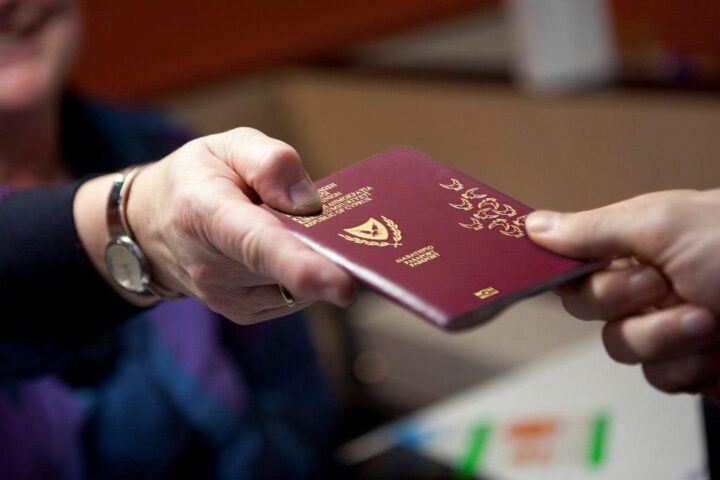By Nick Kochan
Thomson Reuters Regulatory Intelligence Analysis
Cyprus’s financial services compliance and enforcement organisations have been undergoing root-and-branch reforms, but the island’s regulation remains overshadowed by a legacy of largely Russian financial impropriety, corruption and money laundering.
“Western financial institutions still do not feel comfortable with Cyprus. Is it easy to do money laundering in Cyprus now? No. Has the perception changed? No. The perception is still there,” said Stelios Platis, founder of MAP, a UK-headquartered supplier of compliance services.
“There’s some disparity in terms of Cyprus’s reputation versus what happened in the past and what’s happening now on the island.”
These negative assessments are disputed by the Bank of Cyprus, the country’s largest bank.
“We consider that Cyprus has done enough to earn the credibility of our partners in the Western world. We not only talk the talk, we walk the walk,” said Marios Skandalis, head of compliance at the Bank of Cyprus.
To tighten its regulatory regime, the island is about to embark on a regulatory reorganisation that will include establishing a new, unified regulator for fiduciaries. A shake-up of Cyprus’s sanctions regime is also expected by the end of the year to reduce the formerly considerable involvement of Russian and Belarusian firms and investors in its economy.
International agencies have given increasingly favourable assessments of the island’s regulation and anti-money laundering procedures. A recent MoneyVal report indicated that Cyprus’s efforts to raise compliance performance had borne fruit. Banks report widespread derisking and tougher onboarding procedures.
Financial services remain a key component of the Cyprus economy, with the European Securities Markets Association (ESMA) reporting that Cyprus is the primary location for firms providing cross-border investment services in the EU and European Economic Area (EEA). Cyprus accounts for 20% of all firms passporting investment services, ESMA said.
The MoneyVal report on Cyprus, released in May 2024, found Cyprus to have improved its compliance with the Financial Action Task Force’s (FATF) Recommendation 15 on new forms of technology. Compliance with FATF Recommendation 8, relating to non-profit organisations, has also improved. The report noted several measures to assess terrorism financing risk exposure by the non-profit sector and that oversight activities have been begun but are only partially implemented.
Increased compliance
“The level of the threshold of compliance has increased by local banks both in relation to know-your-customer procedures and onboarding, but also concerning updating client information and circumstances, and in relation to reviewing specific transactions,” said Demetris Taxitaris, CEO of the ComplyMAP Group.
Cyprus-based banks have tripled the number of compliance professionals they employ since 2014, while the banks’ share of the local economy has shrunk, Skandalis said. Cyprus imposed a bail-in regime on banks in 2013. Larger depositors were required to exchange their deposits for bank shares during a liquidity crunch, leading to the collapse of one bank and loss of confidence in the system.
The tougher sanctions regime required by the international community since Russia’s invasion of Ukraine in 2022 has had a prominent impact on Cyprus, where a large Russian and Belarusian population had been key banking customers. Around a third of Cyprus’s financial clients were Russian or Belarusian until at least 2014, according to the Association of Cyprus Banks.
That number then started to decline, with Russians now accounting for just 1.5% of bank customers in Cyprus, the Association of Cyprus Banks said.
“There has been a massive amount of derisking and offloading of accounts. It is now harder to get a bank account in Cyprus than in the UK. Anyone with a Slavic name gets an interrogation, which customers complain about,” Platis said. “The banking system is airtight. The bank may ask you to explain the provenance of even a 100 euro deposit from a Russian. But no one talks about the people who have hundreds of millions in their bank accounts.”
Institutions enforcing the country’s sanctions law are set to be strengthened with the establishment of the National Sanctions Implementation Unit. This followed consultations involving all parts of the Cypriot financial community.
The UK’s Office of Financial Sanctions Implementation (OFSI) announced in 2024 that it would advise the Cyprus government and that the new sanctions unit would be launched by the end of the year.
Previous regime
“The banking sector, the accountancy sector, corporate services profession and others took a conscious decision to detach Cyprus from the previous regime,” said Kyriakos Iordanou, general manager of the Institute of Certified Public Accountants of Cyprus (ICPAC). “That meant a significant loss of business and profit, yet despite that, all aimed to meet the letter of the law and be compliant to the changing circumstances.”
“In many cases, business was terminated as a result of risk aversion, not only with designated persons on the sanctions list but also with any Russian natural and legal person,” Iordanou said.
The move toward a more structured sanctions regime followed a change of the country’s leadership in March 2023, when Nikos Anastasiades, a lawyer and businessperson, was replaced by Nikos Christodoulides, an academic and diplomat.
“The new administration has prioritised this matter, focusing on enhancing the capacity to enforce sanctions and improve the supervision of service providers,” Taxitaris said. “The sanctions processes had to be accelerated and reinforced, both to de-risk and also to give the message to the international community that Cyprus should no longer be perceived as a safe haven for Russian clients.”
The UK government highlighted Cypriot connections to Russian oligarchs in April 2023 when it announced the designation of two Cypriot lawyers. One of the lawyers crafted murky offshore structures for a Russian oligarch, and the other operated a web of trusts and offshore companies involved in a UK real estate purchase, the UK government said.
Russian and Belarusian customers had formed approximately a third of the portfolios at Cypriot financial firms until 2013, when the economy contracted and many left the island.
Banks’ attention is now focused on taking secondary measures against clients from countries who are sympathetic to Russia and engaged in circumventing the sanctions regime through Cyprus, Skandalis said.
“There needs to be a holistic focus, with a unanimous approach in being strict in applying not just the sanctions but overall AML restrictions,” he said.
“The shock therapy has affected the whole economy,” said Andreas Costouris, head of publicity at the Association of Cyprus Banks.
To strengthen its credibility with the international community, the island abolished its citizenship-through-investment (or “golden passport”) scheme in 2020. The scheme had operated since 2013 and allowed foreign individuals to invest €2.5 million (£2.26 million) in Cyprus in exchange for citizenship. Its abuse by the fugitive Malaysian businessperson Jho Low and others brought the scheme and the island into disrepute.
FBI intervention
Anti-money laundering efforts have been enhanced by the intervention of the U.S. Federal Bureau of Investigation (FBI) in the running of MOKAS, the island’s anti-money laundering agency and financial intelligence unit.
“The government says that it ‘invited’ the FBI, but I suspect it had no choice in the matter. U.S. pressure looks like it will lead to a shake-up in the institutional structures,” said Fiona Mullen, founder and director of Cyprus-based Sapienta Economics, a local consultancy firm.
The AML agency needed proper revamping and resourcing, Mullen said. The government was likely to split the functions of the attorney general, who currently acts as both public prosecutor and government legal advisor, she said.
A proposal to enhance curbs on money laundering by bringing all regulators involved in corporate and fiduciary services under a single entity was met with criticism from lawyers.
“Service providers like lawyers, banks and accountants already have established strict rules of adherence to AML/CTF regulations. Over the past six years, we have transformed from independent practitioners to private investigators of money laundering,” said Andreas Pittadjis of the law firm George F Pittadjis.
“Whatever powers will be transferred to an overseeing authority and regulatory board [the new overarching agency] will mean granting more powers to civil servants. This authority will have the right to inspect our files and, in effect, violate attorney/client privilege. Similar provisions were held by the European Court to contravene client/attorney privilege.”
“If money laundering is suspected, the authorities can confiscate and inspect someone’s files. However, with this new board, they will be routinely checking random files belonging to the average person. This is absurd,” Pittadjis said.
The restructuring does not go far enough, however, for the Institute of Certified Public Accountants of Cyprus, which says all professional firms, not just those engaged in fiduciary matters, engaged in the fight against money laundering should have a single regulator.
“There are numerous separate regulatory authorities, each one for its own small slice of the whole market pie, rendering the regulatory landscape fragmented and rather difficult to coordinate and control effectively. We suggest bringing under a single roof all individual regulatory authorities of the financial services sector in order to harmonise their approaches and by-laws,” Iordanou said.
The international financial community will require that Cyprus’s measures against money laundering and corruption are well entrenched before accepting that the island has finally changed its legacy culture.
“Much of the world still sees Cyprus as corrupt. Successive governments were in denial about Cyprus’s international reputation and were very aggressive when anyone challenged the probity of business practices. The current government seems to have realised that this is no longer a viable stance to take and certainly not good for business. But it will take years to turn the reputation around,” Mullen said.
First published 17 September 2024
Nick Kochan is an independent financial journalist who investigates economic crime, fraud and money laundering. Kochan is based in London. He writes for many publications and is regularly interviewed for TV. Kochan’s work may be found at kochan.co.uk.










